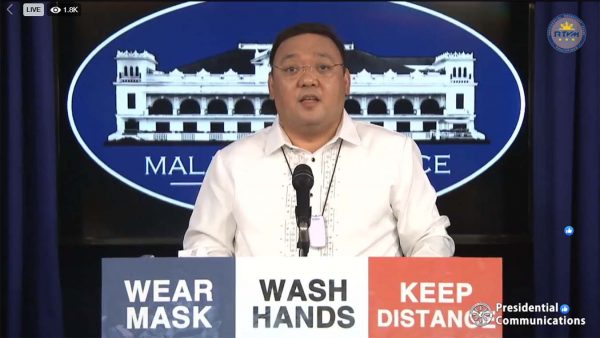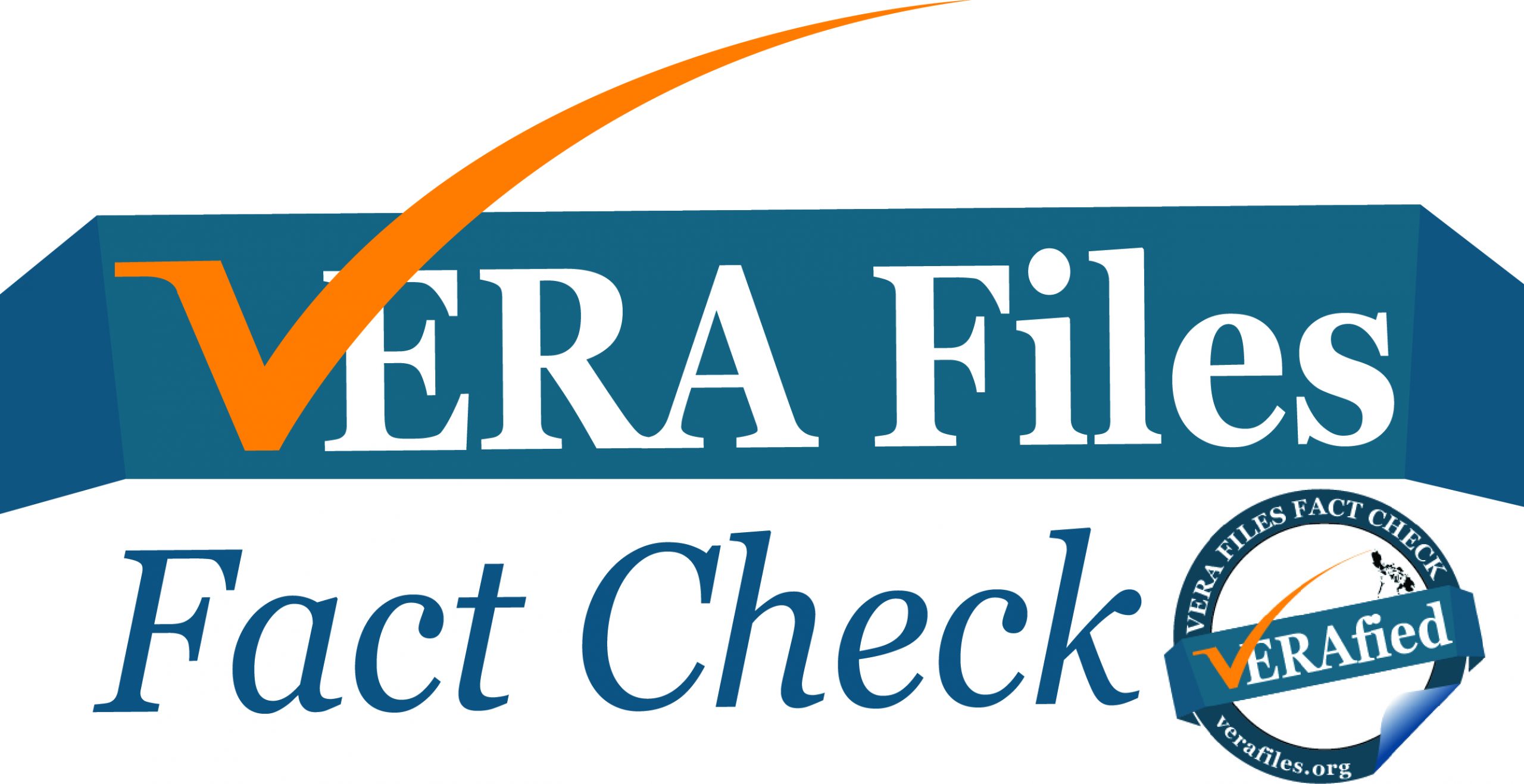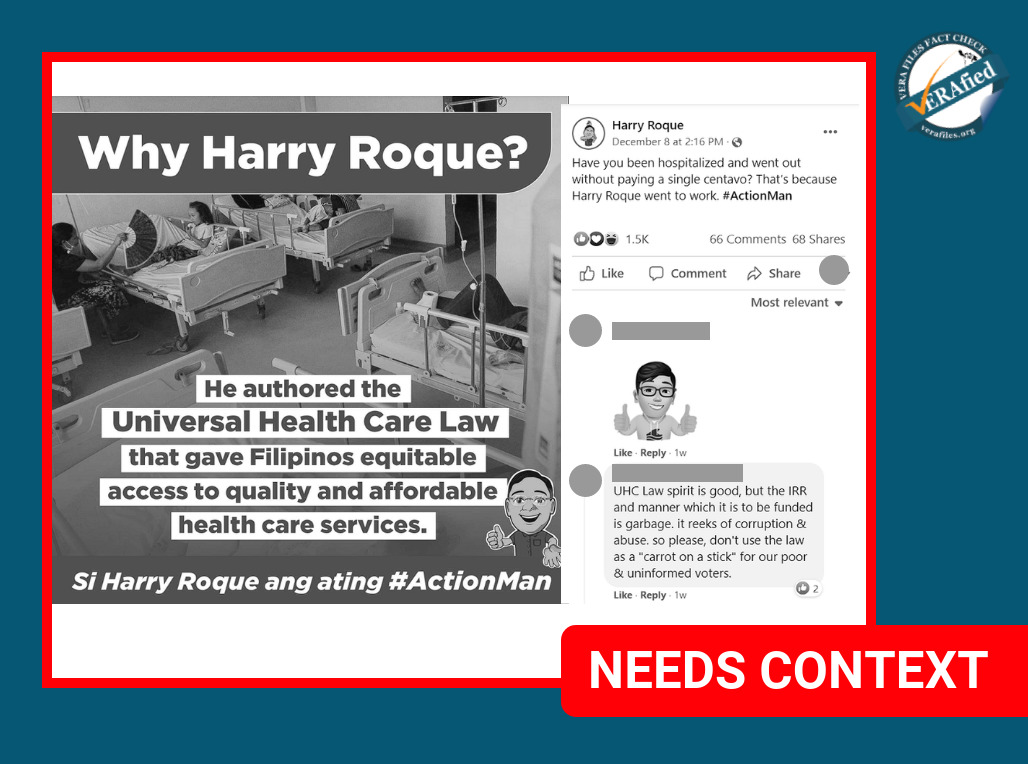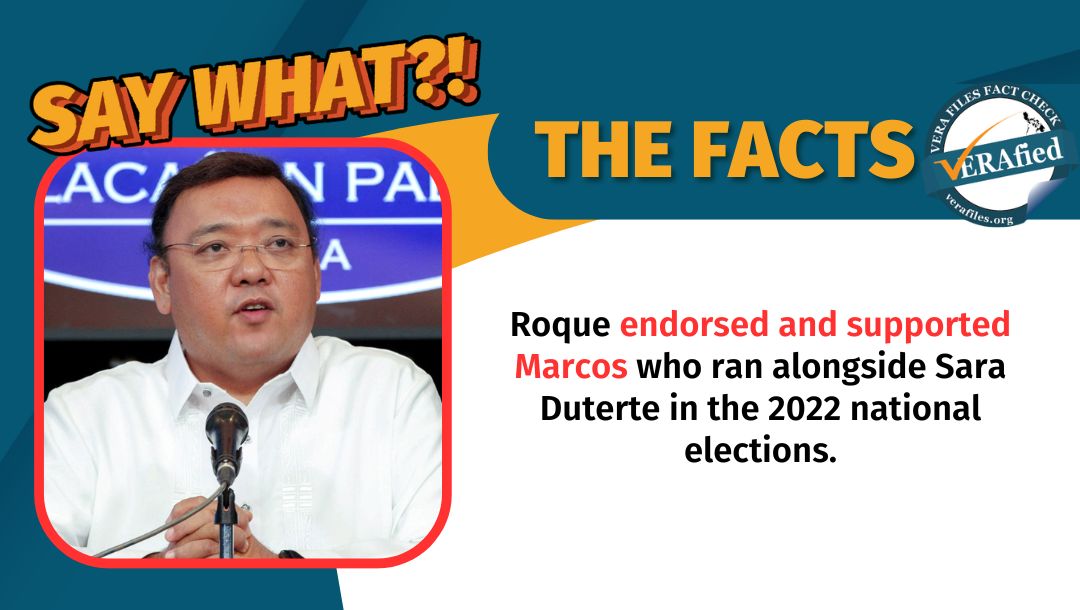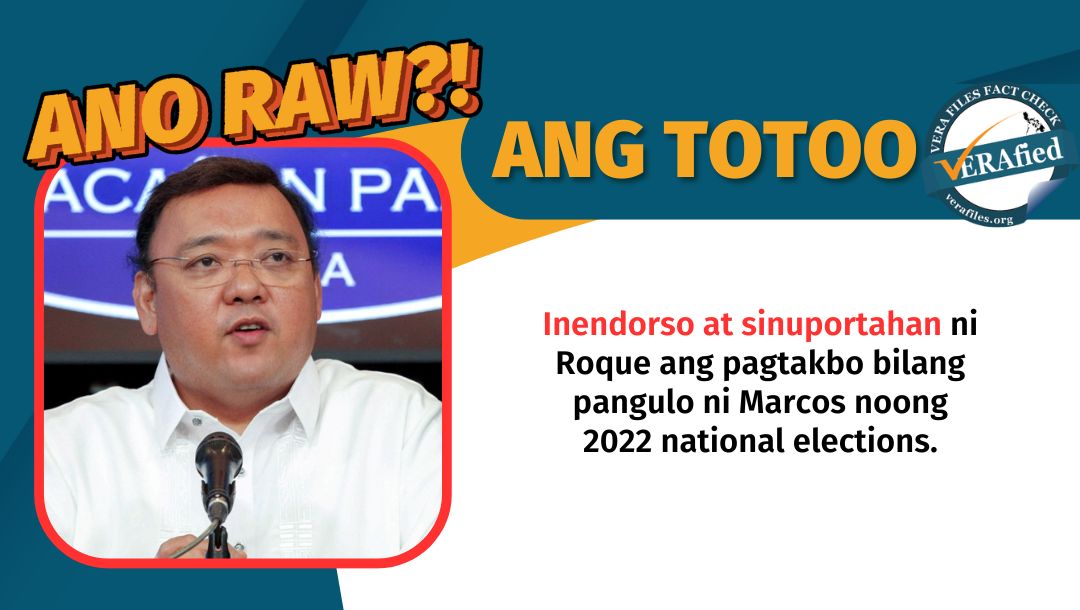Presidential Spokesperson Harry Roque erroneously claimed that the European Union (EU) has not delisted any country from its Generalized Scheme of Preferences (GSP), which removes taxes from several products exported by developing countries like the Philippines.
STATEMENT
In his Sept. 22 press briefing, Roque said:
“Tanging ang European Commission lang po ang may kapangyarihan na mag-withdraw ng GSP preference. At sa ngayon po ay wala pa namang bansa na wini-draw nila ang GSP preference.”
(Only the European Commission has the authority to withdraw GSP preference. So far no country has been withdrawn from the GSP preference.)
Source: PTV, WATCH: Palace virtual presser with Presidential Spokesperson Harry Roque | September 22, 2020, Sept. 22, 2020, watch from 2:44 to 2:57
Roque was reacting to a resolution filed in the European Parliament that calls on the European Commission (EC) to “immediately initiate” the procedure for withdrawing the GSP+ trade status of the Philippines due to the “rapidly deteriorating human rights” situation in the country.
FACT
Roque was wrong. Sixteen countries have so far been delisted or temporarily withdrawn from the list of the current GSP regulation of the EU.
The country most recently stripped of GSP privileges is Cambodia last February, which became effective on Aug. 12. EC temporarily withdrew the Everything But Arms (EBA) agreement, one of three trade schemes under GSP, with Cambodia due to “serious and systematic” human rights violations.
In previous years, EC removed the GSP privileges of other countries, such as Myanmar (formerly Burma) in 1997, Belarus in 2007, and Sri Lanka in 2010, due to labor and human rights violations. Trade preferences for Myanmar (EBA) and Sri Lanka (GSP+) were reinstated in 2013 and 2017, respectively, due to improvements in the human rights situation.
The commission removes countries from the list of GSP beneficiaries due to changes in economic status or trade agreements with the EU. As of January 2019, at least 14 countries, such as Cameroon and Ghana, have been delisted after being classified as upper middle income countries for three years, or upon entering into other trade agreements with the EU.
According to the EC, GSP is composed of three arrangements — EBA, Standard GSP and GSP+ — offered for least developed and low to lower-middle income countries. The GSP system of the EU was first established in 1971 and has been revised at least five times, with the current regulation effective from 2012 to 2023. Currently, 71 countries are benefiting from full or partial removal of tariffs and duties when exporting to the 27 EU member countries.
EC can temporarily withdraw the GSP status for six months if it finds that a beneficiary country is committing serious and systematic violations of human and labor rights, among others, based on its monitoring and evaluation, with consideration of information coming from different sources such as the European Parliament.
On Sept. 17, the European Parliament threatened the Philippines for the third time since 2016 with temporary withdrawal of its GSP+ status after it adopted a resolution condemning human rights violations in the country, including thousands of alleged extrajudicial killings under the Duterte administration’s “war on drugs.”
Because of the threat of losing the GSP+ privileges, Vice President Leni Robredo, business and labor groups, such as the Associated Labor Unions–Trade Union Congress of the Philippines (ALU-TUCP), warned of possible loss of about 200,000 jobs dependent on the trade perks. Local businesses also raised fear of suffering in the event the EU revokes free tariffs on 6, 274 Philippine goods.
But Roque said on Sept. 18 that “Europe” should just “go ahead” with the withdrawal if it wants to “add more burden” to the Philippines amid the coronavirus pandemic. He downplayed the issue as merely a “classic case of misinformation” on human rights issues in the country that opponents of the government spread in the EU. He then asked the Philippine ambassadors to “double” their efforts in spreading the truth about the country.
Trade Secretary Ramon Lopez had said his agency has been working closely and cooperating with EC in addressing “various issues.” He added: “We don’t see any reason why our GSP+ privilege will be withdrawn.”
As of 2019, the Philippines has exported €7.6 billion to the EU since it was granted a GSP+ status in 2014, according to data from the Department of Trade and Industry. In 2019, top GSP+ products exported to the EU market were crude, coconut oil, bicycles, and prepared/preserved pineapples, among others.
Sources
PTV, WATCH: Palace virtual presser with Presidential Spokesperson Harry Roque | September 22, 2020, Sept. 22, 2020
GSP agreements
- European Commission, Generalised Scheme of Preferences (GSP), Accessed on Sept. 28, 2020
- European Commission, Standard GSP, Accessed on Sept. 28, 2020
- European Commission, GSP+, Accessed on Sept. 28, 2020
- European Commission, Everything But Arms, Accessed on Sept. 28, 2020
Information about the European Union
- European Union, Institutions and bodies | European Union, Accessed Sept, 28, 2020
- European Union, The EU in brief, Accessed Sept. 30, 2020
- European Union, Institutions and bodies, Accessed Sept. 30, 2020
- European Union, European Parliament, Accessed Sept. 30, 2020
- European Parliament, The Lisbon Treaty increased the powers of the European Parliament, Accessed Sept. 30, 2020
- European Parliament, MEPs, Accessed on Sept. 30, 2020
- European Union, Countries, Accessed on Sept. 28, 2020
European Commission, Cambodia loses duty-free access to the EU market over human rights concerns – Trade, Aug. 12, 2020
European Parliament, Human rights in EU trade policy, January 2017; European Commission, GSP report, Feb. 10, 2020
United Nations Conference on Trade and Development, , GSP – Handbook on the Scheme of the European Union, 2015
European Union Law, Regulation (EU) No 978/2012, Oct. 25, 2012
European Union Law, Regulation (EU) No 182/2011 , Accessed Sept. 30, 2020
European Parliament resolutions concerning the Philippines’ human rights situation
- European Union Law, P8_TA(2016)0349, Sept. 15, 2016
- European Union Law, P8_TA(2017)0088, March 16, 2017
- European Union Law, P8_TA(2018)0175, April 19, 2018
- European Union Law, P9_TA(2020)0233, Sept. 17, 2020
Council of the European Parliament, RESOLUTIONS and DECISIONS adopted by the European Parliament at its plenary part-session in Brussels from 14 to 17 September 2020, Sept. 18, 2020
European Union wants to temporarily withdraw the GSP privileges of the Philippines
- CNN Philippines, Duterte admin unfazed by EU parliament push for trade sanctions vs. PH over ‘rapidly deteriorating human rights’, Sept. 18, 2020
- Manila Bulletin, EU proposes meeting with PH on human rights issues, Sept. 18, 2020
- GMA News Online, EU Parliament wants to strike down Philippines’ zero-tariff export status, Sept. 18, 2020
Concerns about GSP+ temporary withdrawal
- DZXL 558, BISERBISYONG LENI – 09/20/2020- 9:00 A.M, Sept. 20, 2020
- Inquirer.net, EU sanctions on PH will cut 200,000 jobs, labor group warns, Sept. 19, 2020
- Business Mirror, Biz leaders ask govt: keep Europe GSP plus, Sept. 21, 2020
- ANC 24/7, Labor group says at least 200,000 jobs in danger if EU revokes PH tariff perks | ANC, Sept. 21, 2020,
PTV, Press Briefing of Presidential Spokesperson Harry Roque, Sept. 18, 2020
European Union, EU Trade Preferences (GSP+) Monitoring Report: “Philippines is making good progress on implementation of Conventions”, Jan. 28, 2016
(Guided by the code of principles of the International Fact-Checking Network at Poynter, VERA Files tracks the false claims, flip-flops, misleading statements of public officials and figures, and debunks them with factual evidence. Find out more about this initiative and our methodology.)
